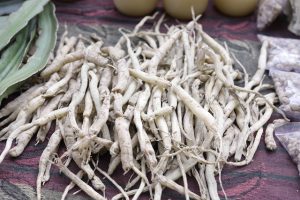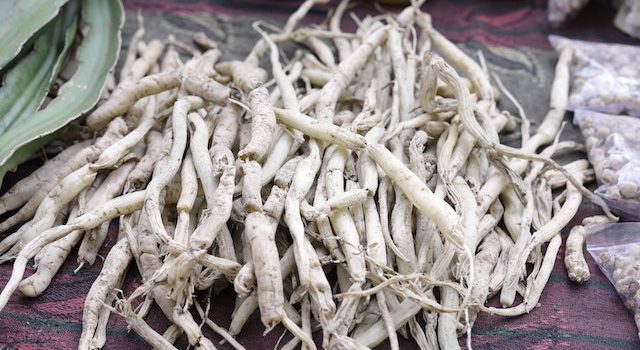
Turmeric, often referred to as the “golden spice,” is not only a vibrant addition to our culinary world but also a cherished remedy in traditional medicine. For centuries, this aromatic root has been embraced by cultures worldwide for its holistic healing properties. In this exploration, we will delve into the historical use of turmeric in traditional medicine and unveil its relevance in modern healthcare, showcasing its enduring role in holistic healing.
Turmeric’s Historical Significance
The use of turmeric dates back thousands of years and is deeply rooted in various traditional medicinal practices. Its journey through time offers a captivating glimpse into its enduring significance:
1. Ayurveda – India’s Ancient Science of Life
Turmeric is a key player in Ayurveda, India’s ancient system of holistic medicine. Known as “haldi” in Sanskrit, it holds a revered place in Ayurvedic formulations. Turmeric is believed to balance all three doshas (Vata, Pitta, and Kapha) and is considered a potent remedy for various ailments.
2. Traditional Chinese Medicine
In Traditional Chinese Medicine (TCM), turmeric is employed to invigorate the blood, resolve stagnation, and alleviate pain. It is used to treat a range of conditions, from menstrual discomfort to digestive issues.
3. Siddha Medicine – The Tamil Tradition
In Siddha medicine, a traditional healing system in Tamil culture, turmeric is utilized to balance the bodily humors and treat ailments such as skin conditions, respiratory problems, and more.

4. Indonesian Jamu Tradition
Indonesia’s Jamu tradition employs turmeric as a primary ingredient in herbal elixirs. These elixirs are consumed to promote overall health and well-being.
5. Other Global Traditions
Turmeric’s therapeutic applications extend beyond Asia. In the Middle East, it is used as a digestive aid, while in Africa, it’s applied as a natural remedy for a variety of health issues.
The Modern Applications of Turmeric
In the contemporary world, turmeric has garnered attention from the scientific community and healthcare professionals for its diverse health benefits. The key to its modern applications lies in its active compound, curcumin. Let’s explore the roles turmeric plays in modern healthcare:
1. Anti-Inflammatory Properties
The anti-inflammatory properties of curcumin are well-documented. It has been studied for its potential in managing inflammatory conditions like arthritis, making it a natural alternative to pharmaceutical anti-inflammatories.
2. Antioxidant Benefits
Curcumin’s potent antioxidant properties help combat oxidative stress and reduce cellular damage. It is considered a valuable component in promoting overall well-being and longevity.
3. Brain Health
Emerging research suggests that curcumin may have neuroprotective effects. It can potentially reduce the risk of cognitive decline and neurodegenerative diseases, such as Alzheimer’s.
4. Heart Health
Curcumin is under investigation for its role in improving cardiovascular health. It may help regulate blood pressure, reduce cholesterol levels, and protect the heart from various risk factors.
5. Digestive Wellness
In modern healthcare, turmeric has found a place in promoting digestive health. It can alleviate symptoms of irritable bowel syndrome (IBS) and soothe digestive discomfort.
6. Skin Care
Turmeric’s anti-inflammatory and antioxidant properties are valued in the world of skincare. It is used in various topical applications to enhance skin health and combat skin conditions.
7. Cancer Research
Curcumin has been the subject of extensive research into its potential as an anti-cancer agent. While more studies are needed, preliminary findings show promise in inhibiting the growth of cancer cells.
How to Incorporate Turmeric into Modern Healthcare
Turmeric’s modern applications extend beyond the kitchen and into various healthcare practices:
1. Supplements
High-quality turmeric supplements standardized for curcumin content offer a convenient way to harness the spice’s health benefits.
2. Integrative Medicine
Integrative healthcare practitioners may recommend turmeric and curcumin as part of a holistic approach to wellness.
3. Topical Applications
Turmeric-based skincare products are increasingly popular, offering a natural and holistic approach to skin health.
4. Dietary Inclusion
Incorporating turmeric into your daily cooking is a flavorful and health-enhancing choice. It pairs well with a wide range of dishes, from soups and stews to curries and roasted vegetables.

Conclusion
Turmeric’s journey through time is a testament to its enduring significance in holistic healing. From the ancient practices of Ayurveda to its contemporary applications in modern healthcare, this golden spice has remained a cherished and powerful remedy. As the scientific community continues to explore its health benefits, turmeric’s role in holistic healing continues to evolve. Consult with healthcare professionals for guidance on incorporating turmeric into your wellness regimen, and embrace the timeless wisdom of this golden spice for a healthier and more balanced life.










